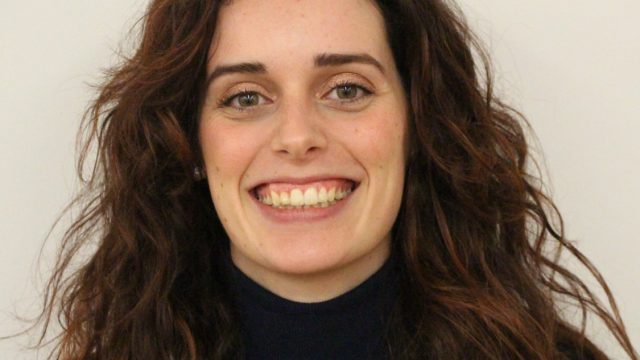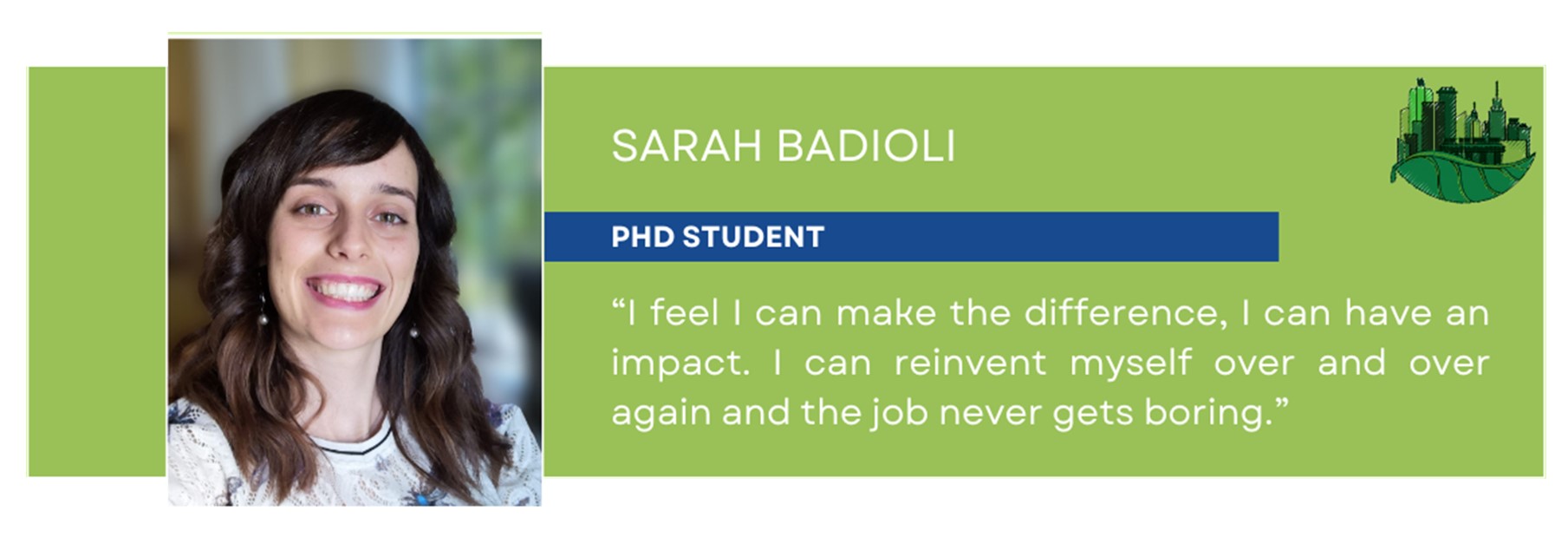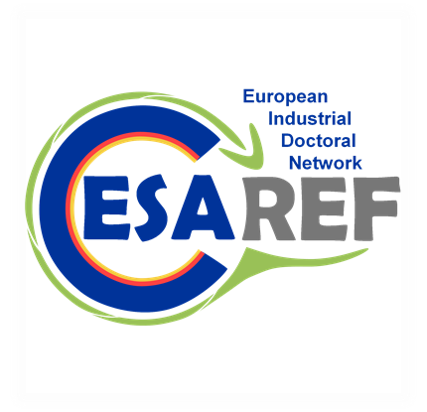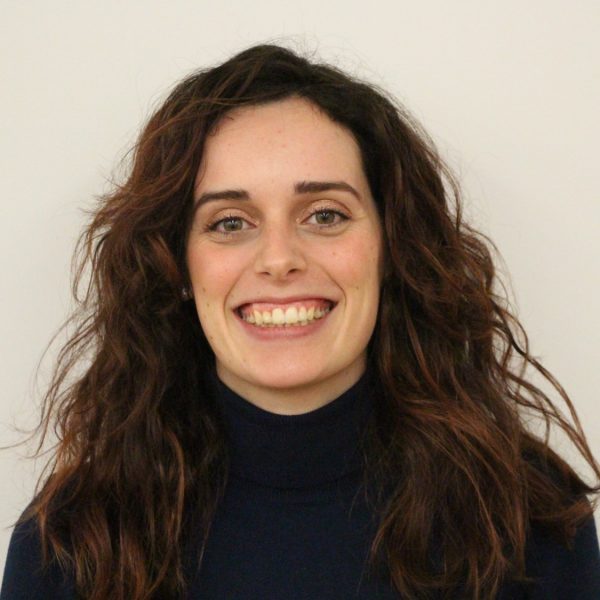
Get to know : Sarah Badioli

CESAREF Doctoral candidate
How would you describe yourself in two sentences?
I’m an energetic, focus-oriented and determined environmental engineer. I’m a mix of rationality and creativity, passionate for science, nature and art.
What are you currently working on?
I’m a second-year PhD working on the Life Cycle Assessment (LCA) of refractories used in the steelmaking to support the effort of both industrial sectors towards sustainability. In other words, I perform environmental assessments to quantify the current environmental impacts, identify the hotspots and suggest eco-design strategies for the future.
Did you always want to work in science? How were you introduced to it?
« Engineers are those who can solve problems » I was told, so I chose to study engineering to apply science to practical situations and find solutions that could help solve real problems. Then, I chose to be an environmental engineer because I felt that I needed, and I could do something, to protect our world. I felt the urge to be part of the transition towards sustainability.
Could you briefly describe your academic/professional career?
After attending the scientific high school, I obtained a bachelor’s degree in civil and environmental engineering at the Università Politecnica delle Marche (Italy) with a research thesis in Road construction entitled “Mechanical characterization of warm mix asphalt pavement”. I then moved to the University of Bologna (Italy) where I obtained my master degree in Environmental engineering with the research thesis “Environmental sustainability of transport of logistic infrastructures”. I studied the “Environmental techniques and technologies” curriculum, characterised by courses focused on industrial ecology, sustainable development, environmental engineering and energy economics, waste management and resources supply chain. I was interested in research, so I applied for, and won, a grant as temporary research associate at the Italian Institute for Environmental Protection and Research (ISPRA) in Rome. Here I worked in the field of future studies, and I planned scenarios for the circular economy. I also participated in the creation of environmental indicators, and I took part to European working groups (EIONET, Foresight, SoE groups). After this experience, I felt the need to obtain a PhD to eventually continue my career in academia, but at the same time I was curious about doing research in industry. Also, I felt the need to travel and discover more about working environments and research approach in other countries. For this reason, I applied for the industrial doctorate in the CESAREF DN. I started it in October 2022 at the University of Liège (Belgium) and in July 2023 I moved to my industrial partner Saint-Gobain Research Provence (France).
Why is it relevant to talk about gender equality in science?
Because of the discrimination faced by some of my female colleagues in hiring processes, where interest in women’s private lives, such as current or possible future pregnancies, is far too high.
In your career, did you face problems linked to your gender? What progress have you seen on gender equality in your life and work?
Luckily, I always took part to young and open-minded working group in which no discrimination occurred. However, in a couple of interviews for job positions, I was asked if I was planning to get married and have children. I don’t think my private life should be questioned during such processes.
Who is your woman scientist inspiration?
Katherine Johnson (Goble) for her courage and determination to fight racial and gender barriers. She showed me the possibility to be a scientist without giving up on family. She won.
What is the most motivating/exciting aspect of your job?
I can make the difference; I can have an impact. Also, I can reinvent myself over and over again and the job never gets boring.
What message could you give to the young generation?
Explore the countless possibilities that the world offers you, and risk it. Don’t worry to fail, the important is that you tried and gave your best.





